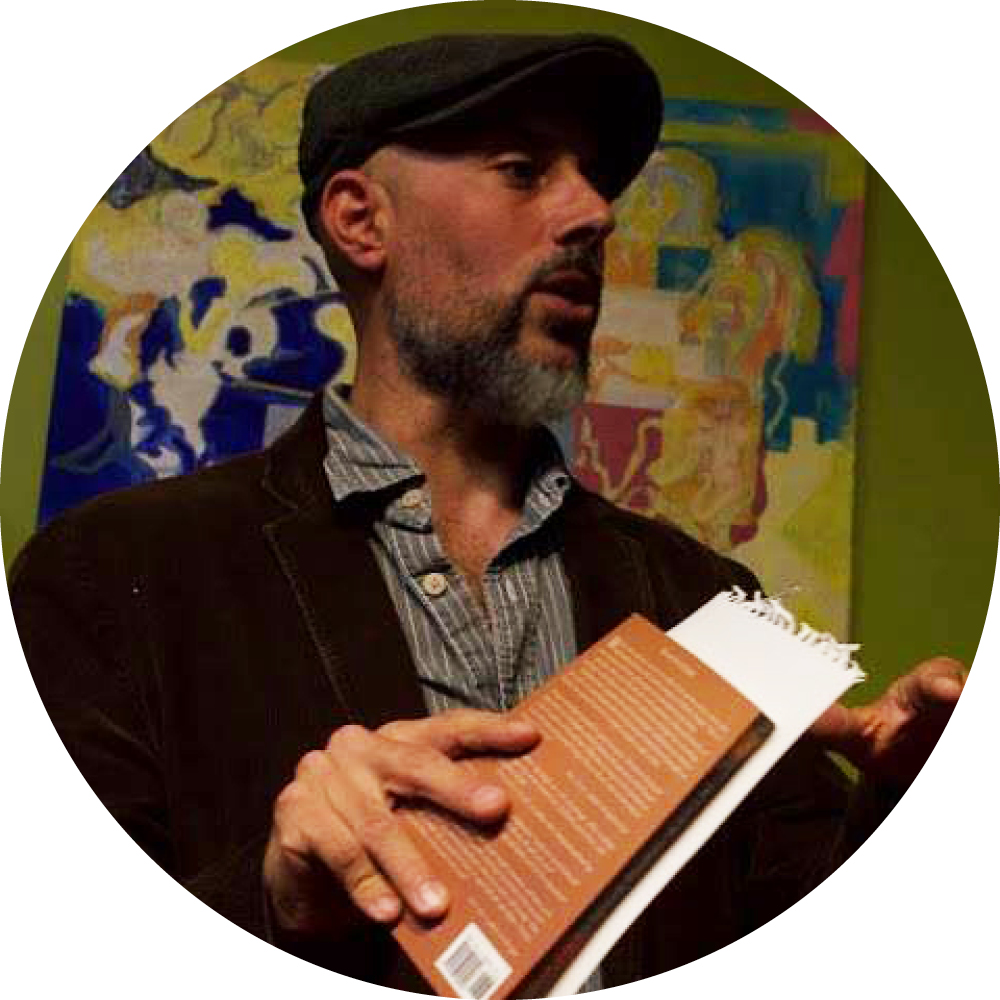Name The 21st Century: Adultum
By Josef Senft
In the current crisis of democracy and at the end of economic growth we need the narrative of an age of adult world citizens.
This new narrative is about the analogy between the life phase of a person at the end of physical growth, the adult age, and the present political and economic situation at the limits of growth, the experiences of the degrowth. Just as individual adulthood results in the end of physical growth accompanied by an intellectual and emotional maturity that allows one to recognize the consequences of one’s actions, humanity must also reach a collective adulthood that allows us to bring forth a civilization no longer reliant on perpetual consumption and growth.
This comparison is not to be understood biologically or deterministically, but rather as a political narrative for critical-optimistic thinking and responsible behavior. Grown-up people stand in the tradition of the Enlightenment, which called on all men to use the intellect without the guidance of another. Immanuel Kant saw in this point the exit of man from his self-inflicted immaturity. Today one can formulate in an enlargement that only in this responsibility will the exit of self-produced politically, ecological and economic crises exist, if mature citizens are willing to take responsibility.
Therefore, the coming age – in the sense of a narrative, but not less critical understanding – should be called adultum, as an age of mature world citizens.
As a term rooted in the tradition of the Enlightenment it would, as a name for an era, not compete with the “grand narratives” of Modernity but become politically meaningful as a critical narrative of the age of zero growth. Analogous to the individual coming of age, this would not only relate to the end of quantitative growth and the beginning of a change in values. It would just as much relate to the current global environmental and economic crises that require us to seriously take on responsibility for lifestyles and policy choices.
Catastrophic consequences or conscious political choices
A comparison between the growing-up of an individual (ontogeny) and social growth processes (phylogenesis) is problematic because of the risk of philosophical determinism. Viewed analogously, however, it is interesting to point out the similarities between the end of physical growth and the increasingly apparent social and ecological limits to growth. But also the comparable expectations towards the growing maturity of character after adolescence on one hand, and the growing understanding of the necessity for a qualitative change instead of economic growth on the other hand, make the term “Adultum” appear plausible to describe such a move into a mature, adult age of society.
Because the prevailing production-methods and lifestyles of industrialized societies overburden the ecological capacity of the earth, the transition from quantitative to qualitative growth in terms of social relations, values, and well-being is widely demanded. The organism that grew steadily for many years has now left this phase behind and has entered the phase of maturation, of modification and development.
Attac, an international movement working towards social, environmental and democratic alternatives in the globalization process, describe that on a finite planet unlimited growth is coming to an end, and that the choice is merely between an end with catastrophic consequences or conscious political choices.
The modern belief in all-round progress and its human boundaries
Modern thinking is characterized by an optimistic view of progress and innovation, which relates to the progress of technology and science during certain stages in the development of mankind. Hegel, for example, defines history as progress in the consciousness of freedom, in a dialectical process, and distinguished three stages of development, which follow one another similar to the periods in a person’s life. Similar theories of development in stages were developed in different contexts and usually culminate in a state of “maturity”. Walt Rostow for example postulates that the “drive towards maturity” comes before the highest stage of economic growth, the “age of high mass consumption”.
While these social theories were increasingly criticised because of their determinism, theories discussing individual stages of development largely remained important. These include, for example, the stage models of psychosocial development by Erik Erikson, of cognitive development by Jean Piaget and of moral development by Lawrence Kohlberg. But even here the value of progress to the next stage became increasingly relativized in favour of the intrinsic value of the respective stage, and the limitations as an anthropological constituent were recognised.
Grown up people are mainly characterized by their ability to deal with experiences of weakness and failure intstead of remaining fixated on scenarios of progress or quantitative growth models.
It requires a reflexive Modernity
The grand narrative of limitless progress that can be regarded as the defining characteristic of modernity, implies a belief in instrumental rationality and science. This “adolescent” thinking in terms of absolutes was questioned by the dialectic of enlightenment and disavowed not least by the horrors of the 20th century. Nevertheless, modernity was also strongly influenced by the courage to embrace the maturity of the enlightenment and, according to Jürgen Habermas, by subjectivity, individualism, the right to criticize, autonomy of action and idealistic philosophy.
This was not enough appreciated by the postmodern criticism, which put the possibilities of diversity against “progressive certainties”. Therefore, other terms such as “second modernity” or “reflexive modernity” were brought into play by Ulrich Beck. These not only express a break with the categorical framework of industrial society, the digital revolution and the irreversible globality, but also demonstrate that the characteristics of modernity have by now taken on a more radical form that generates large risks.
Just as individual adulthood results in the end of physical growth accompanied by an intellectual and emotional maturity that allows one to recognize the consequences of one’s actions, humanity must also reach a collective adulthood that allows us to bring forth a civilization no longer reliant on perpetual consumption and growth.
The narrative for an age of zero growth is necessary
History means a mental construct in narrative structures and limitations of perspective. Just as past events, linked into a coherent narrative, are inevitably constructed and vary depending on the point of view and approach, the assessment of the present and the expectations for the future are also narratively structured and limited in their perspective.
In the face of the challenges of the 21st century, stories of hope are just as necessary as in-depth analyzes. Harald Welzer for example encourages to tell stories about successful projects against the mindless reality. In his opinion, those stories about real experiments of a different reality are more illustrative and may evoke more motivation to change than 42 books on climate change.7
The latest report to the Club of Rome, “A global forecast for the next forty years” describes a threatening future scenario. According to this report the struggle for redistribution will increase. Further optimizations will take place but this will mainly benefit our generation and our children. It is predicted that already our grandchildren will have a harder time because growth is not stopped in time; for future generations disasters are predictable. Even though the report makes suggestions as to how the individual should respond to the emerging developments, it is for several reasons criticized as too pessimistic. For example, the current changes in values from a purely economic to a more sustainable thinking are referred to in the report but not included in the calculations of the models.
At the Degrowth Conferences in Leipzig and Budapest the need for a fundamental change in values was underpinned not only theoretically, but also through the presentation of successful experiments. In a large number of lectures and workshops, projects presented themselves and answered critical questions. For example, initiatives like urban gardening, food cooperatives, car sharing, regional currencies, transition towns, unconditional basic income, sharing services, repair workshops. All these projects have in common their commitment to the good life along with the reduction of a resource hungry lifestyle, and their commitment to an economy of sharing and in particular to the re-appropriation of the commons.
Jakob von Uexküll predicts that the global culture of consumption will be replaced by a common civic culture; not because anyone will prescribe it, but because there is no alternative except chaos, wars and the collapse of our societies. Such a culture, argues Oliver Marchart, would have to reflect the heterogeneity of its own identity and ask questions such as: “What kind of ‘we’ do we constitute? For whom do we speak? Who is in, who is missing? Who was forgotten? Who was excluded? Who wants, perhaps, for any reason, no longer be part of it? “
And when your child asks you: “Why grow up?”
This question is also the title of the book of the American philosopher Susan Neiman, published in 2015. Susan Neiman is the director of the Einstein Forum, a foundation that serves the public as an open laboratory of the mind, in Potsdam near Berlin. She criticizes the common opinion that it is part of adulthood to abandon your ideals and dreams. The opposite is true in their opinion. However, she does not understand herself as an optimist because of the multiple crises of the present. She describes herself as an idealist who has hope when, for example, The many young people who ask questions, try new things and do not get discouraged.
Adultum as name of the coming era can be described as “adult idealism” (S. Neiman) in so far as that it does not blank out the current crisis and the threats to the future, but faces these challenges. Instead of lapsing into alarmism or resignation, this “adult narrative” encourages us to participate in a civil society which pushes democratically for more sustainable and socially just conditions and supports and advocates for projects that enable a more humane life in dignity for all around the world while ensuring that this remains possible also for future generations.
About The Author
Josef Senft
Dr. Josef Senft lives with his family in Bonn; for thirty years without a car of his own. He worked as a professor at the Institute for Catholic Theology at the University of Cologne. His work focuses on social and environmental ethics, religious education, and theology of liberation. He has been active for many years in the context of the Oscar-Romero-Haus in Bonn.
Re-sources
Re-Imagining Education

Empowering educators to take a deeper look at the stories told in our schools and to re-imagine them in transformative and
nurturing learning spaces.
Learning Opportunities

Classes, workshops, and lectures that help to empower people to re-imagine who they are and their place in the world.
CWP

The Chicago Wisdom Project offers a alternative to the industrial and corporate models of education that have become increasingly prevalent in the American educational landscape.

